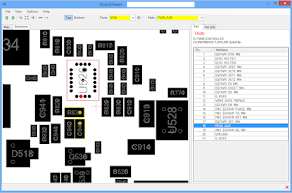Laptop from Overheating Issu fixed
Overheating in laptops is a common issue that many laptop owners encounter. In some cases, aging laptops may experience overheating due to internal hardware problems that can be challenging for most people to resolve. However, the most frequent cause of overheating is inadequate airflow within the laptop. It's important to note that overheating does not necessarily indicate serious underlying issues, as there are several methods available to mitigate and cool down the laptop.
If your laptop is overheating, there are several steps you can take to address the issue:
-
Check for dust and clean the vents: Dust accumulation can block airflow and contribute to overheating. Use compressed air or a soft brush to clean the vents and ensure proper ventilation.
-
Use a cooling pad or stand: A cooling pad or stand with built-in fans can help improve airflow around your laptop, keeping it cooler during use.
-
Ensure proper ventilation: Avoid using your laptop on soft surfaces like beds or cushions, as they can block the vents and trap heat. Place your laptop on a hard, flat surface to allow better air circulation.
-
Avoid blocking the air intake: Be mindful of where you place your laptop. Ensure that the air intake vents on the bottom or sides of the laptop are not blocked by objects or your clothing.
-
Adjust power settings: Configure your laptop's power settings to optimize performance and reduce heat generation. You can set the power mode to "Power Saver" or adjust the maximum processor state to a lower percentage.
-
Close unnecessary applications: Running multiple programs simultaneously can put a strain on your laptop's resources, leading to increased heat. Close any unnecessary applications or background processes to reduce the workload on your system.
-
Update drivers and firmware: Outdated drivers or firmware can sometimes cause overheating issues. Visit the manufacturer's website and ensure that your laptop's drivers and firmware are up to date.
-
Limit resource-intensive tasks: Avoid running demanding applications or performing resource-intensive tasks for prolonged periods. Tasks like gaming, video editing, or running virtual machines can generate significant heat. Take regular breaks to allow your laptop to cool down.
-
Consider a hardware upgrade: If your laptop consistently overheats and you've tried various software solutions, it might be worth considering a hardware upgrade. Adding more RAM, replacing the hard drive with an SSD, or even upgrading to a more powerful cooling system can help alleviate overheating issues.










No comments:
Post a Comment